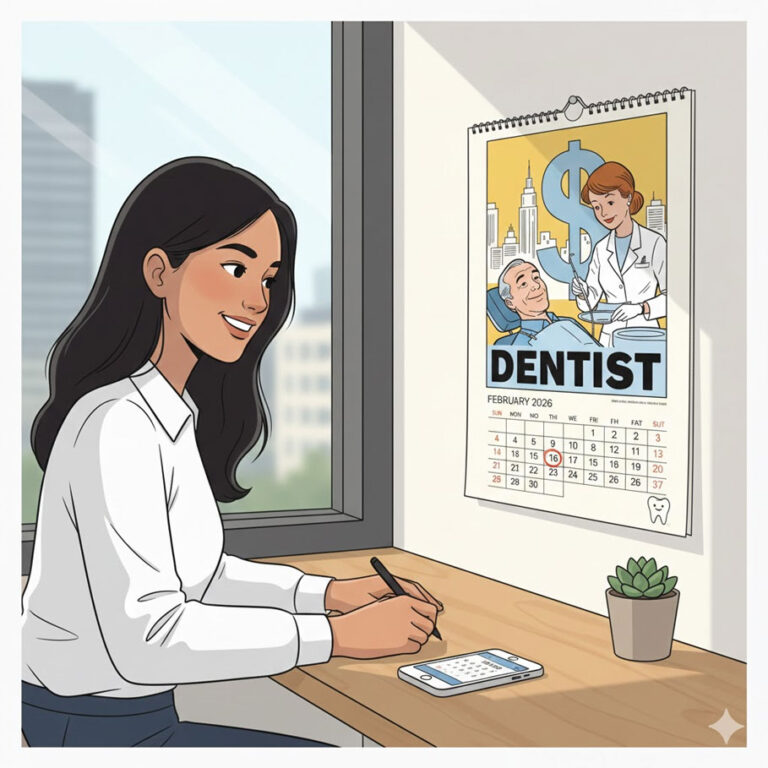If you’ve winced while sipping a hot coffee or biting into a scoop of ice cream, you’re not alone. Tooth sensitivity affects millions of people worldwide, and it can vary from mildly annoying to downright painful. This blog will help you understand what causes tooth sensitivity, how you can address it, and what steps to take to prevent it from returning.

Common Causes of Tooth Sensitivity
Tooth sensitivity often happens when the protective layers of your teeth become compromised, exposing the inner layers called dentin. These inner layers are filled with tiny tubules that connect to the nerves of each tooth. When dentin is exposed, external triggers like heat, cold, or pressure can reach the nerves and cause discomfort or pain. Here are some of the most common culprits behind tooth sensitivity:
1. Gum Recession
Healthy gums play a crucial role in protecting the roots of your teeth. However, if your gums begin to recede due to gum disease or aggressive brushing habits, the tooth roots become exposed. Since these roots lack enamel, they’re much more sensitive to temperature changes and other irritants.
2. Enamel Erosion
Enamel is the hard outer layer that shields your teeth from damage. Over time, acidic foods and drinks, poor oral hygiene, or even teeth grinding (also known as bruxism) can wear down your enamel. When the enamel thins or erodes, the underlying dentin becomes vulnerable.
3. Tooth Decay and Cavities
Cavities are often accompanied by sensitivity. This happens because decay eats through the protective enamel and exposes the sensitive parts of the tooth beneath.
4. Dental Procedures
Some people notice heightened sensitivity after dental procedures like professional cleanings, fillings, or teeth whitening. While this is typically temporary, it can be unsettling if you’re not prepared for it.
5. Cracked or Damaged Teeth
A cracked tooth or a broken filling can also lead to sensitivity. Even a tiny crack can cause pain when pressure is applied or when your tooth is exposed to hot or cold.
6. Teeth Whitening Products
At-home whitening kits and certain toothpaste brands may contain abrasive or chemical compounds that irritate teeth. If you’ve recently started using such products and notice sensitivity, they could be the cause.
7. Brushing Too Hard
Using a stiff-bristled toothbrush or brushing with excessive force can wear down enamel and irritate your gums, both of which can make teeth more sensitive.
8. Acidic Diet
Frequent consumption of acidic foods, such as citrus fruits, soda, or vinegar-rich dressings, can gradually erode enamel and contribute to sensitivity.
How to Fix Sensitive Teeth
Tooth sensitivity doesn’t have to put a damper on your daily life. Fortunately, there are multiple ways to address the issue, ranging from at-home remedies to professional treatments.
1. Switch to a Desensitizing Toothpaste
Desensitizing toothpaste is specifically designed to block the transmission of pain signals from the surface of the tooth to its nerve. With regular use, many people see improvement in sensitivity within a few weeks. Look for brands that contain potassium nitrate or stannous fluoride, both of which are effective ingredients for sensitive teeth.
2. Practice Gentle Brushing
Opt for a toothbrush with soft bristles and be mindful of your brushing technique. Instead of scrubbing aggressively, use gentle circular motions to clean your teeth without causing damage.
3. Use a Fluoride Mouthwash
Fluoride strengthens enamel and can help reduce sensitivity. Incorporate a fluoride rinse into your nightly routine to provide an extra layer of protection.
4. Avoid Acidic Foods and Drinks
Limiting your intake of acidic foods can prevent further enamel erosion and give your teeth a chance to recover. If you do consume something acidic, rinse your mouth with water immediately afterward to neutralize the acid.
5. Wear a Night Guard
If you grind your teeth at night, investing in a custom-made night guard can prevent further enamel wear and protect your teeth from cracks or trauma.
6. Seek Professional Treatments
For more severe cases of tooth sensitivity, your dentist may recommend in-office treatments such as fluoride varnishes, bonding material to seal exposed areas, or even gum grafting surgery to cover receding areas.
Preventing Tooth Sensitivity
Prevention is always better than treatment. To minimize your risk of developing tooth sensitivity, here are some proactive steps you can take:
1. Establish a Gentle Oral Care Routine
Brush your teeth at least twice a day and floss daily, being careful to avoid harsh techniques or abrasive tools. Pair this with a non-abrasive toothpaste suited for low sensitivity.
2. Stick to Regular Dental Checkups
Seeing your dentist every six months can help catch any issues early. They can diagnose problems like cavities, gum disease, or bruxism and recommend solutions before these conditions lead to sensitivity.
3. Drink Plenty of Water
Staying hydrated helps maintain healthy saliva levels, which aids in neutralizing acid and washing away harmful bacteria. Sipping water with meals can also dilute acids from food and drink.
4. Reduce Your Sugar Intake
Sugary foods and drinks can trigger tooth decay and erosion, both of which contribute to sensitivity. Limiting sugar in your diet helps protect your teeth and enamel.
5. Protect Your Teeth During Sports
If you participate in contact sports, always wear a mouthguard to keep your teeth protected from possible injury.
When to See a Dentist
While some sensitivity is manageable at home, persistent or worsening symptoms may indicate a more serious underlying issue. Here are some signs that it’s time to see a dentist:
- The sensitivity doesn’t improve after trying at-home remedies.
- You experience sharp, severe pain rather than mild discomfort.
- The sensitivity is localized to one specific spot or tooth.
- Your teeth are visibly cracked, decayed, or discolored.
- You notice other symptoms such as bleeding gums, swelling, or bad breath.
Addressing tooth sensitivity early can prevent it from escalating into larger dental problems. Your dentist can assess the root cause and create a tailored treatment plan to restore your comfort.
Final Thoughts
Living with sensitive teeth doesn’t have to feel like a constant battle. By understanding the causes, taking steps to treat the symptoms, and adopting preventive measures, you can reclaim your confidence to enjoy hot coffee or a cold scoop of ice cream without the wince. If the issue persists or worsens, don’t hesitate to reach out to your dentist for personalized care. At El Paso Dentist, we’re here to help keep your smile bright, healthy, and pain-free. Schedule your appointment today, and take the first step toward lasting relief.


